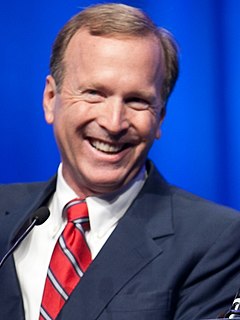A Quote by Nicholas D. Kristof
The U.N. Population Fund has a maternal health program in some Cameroon hospitals, but it doesn't operate in this region. It's difficult to expand, because President Bush has cut funding
Related Quotes
The president recognizes that funding global health is good for national security, domestic health and global diplomacy. Consequently, President Obama has steadily increased funding for the President's Emergency Plan for AIDS Relief, or PEPFAR, which was created by President Bush and has strong bipartisan support.
This year, the United States renewed funding of reproductive healthcare through the United Nations Population Fund, and more funding is on the way. The U.S. Congress recently appropriated more than $648 million in foreign assistance to family planning and reproductive health programs worldwide. That's the largest allocation in more than a decade - since we last had a Democratic president, I might add.
The gag rule must be eliminated, and it's just the gag rule, we're not talking now even about funding abortion. We're talking about, you know, counseling and speaking, so that's one. That can be reversed by an executive order. [George W.]Bush put it in the first day he got in office. We hope that [Barack] Obama takes it out. He had cut off funding for the United Nations Population Fund, UNFPA, even though Congress had appropriated. It is injured women who are the poorest of the poor.
When a hedge-fund guy gets lucky because the market goes up, and he is going to make $200m, and you know $200 million, and he is going to pay almost no tax. I don't think that is a good thing for the country, and they are all supporting Jeb Bush and Hillary Clinton, all the hedge-fund guys. I don't want their support, because I'm totally self-funding my campaign.
To the best of my knowledge, every acute inpatient ward offers some inpatient group therapy experience. Indeed, the evidence supporting the efficacy of group therapy, and the prevailing sentiment of the mental health profession, are sufficiently strong that it would be difficult to defend the adequacy of the inpatient unit that attempted to operate without a small group program.

































